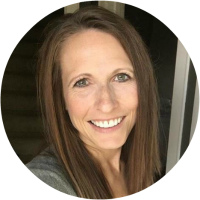5 Questions To Ask Before Opening A Savings Accounts
Many people save money through websites like Simply Switch which allows them to search for lower energy bills, but they don’t actually put that money away in a saving account. A lot of people also have limited knowledge of saving accounts. Did you know that all savings accounts are not the same? Among the variables that affect an account’s profitability are the financial institution, the mode of operation, and online product accessibility. Apart from these factors, you also have the interest rates and fees to consider..
Opening a savings account is one of the most low risk investments that the average person can make, with many asking how to open a tax free savings account so they can get started on their investments. Often times, you won’t have to pay much and you will start to see a return in just 30 days. However, to develop the financial skills to handle big investments, you need the financial skills to handle small investments.
In this article, you will learn 5 questions you should be asking before opening up an account. Although we will cover it in terms of a savings account, these questions scope way further and are often at the core of being a financially savvy person.
What Type Of Financial Institution Should I Bank With?
One of the most critical factors you need to consider before committing to a savings account is the type of financial institutions that will offer you the savings account.
You can either open your savings account at the bank or credit union. Irrespective of where you open your account, you will enjoy a similar but different experience.
The Federal Deposit Insurance Corporation is in charge of the insurance of all the savings accounts at the US banks. On the other hand, the National Credit Union Administration insures all the savings account at the credit unions. As a result of this, there is a slight difference in the mode of operation of the two institutions.
What is The Difference Between a Bank and Credit Union?
Another thing you need to consider when opening an account is your convenience. It does not matter whether you want to operate your account online or plan not to visit a bank. What matters is for you to be able to visit the bank conveniently.
You’re probably wondering what is the closest bank or credit union near me? Before you pick one, understand the difference. Banks tend to be national with plenty of locations while credit unions tend to be local with less locations.
Research shows that you tend to save more time and money when your bank/credit union is closer to you. You will be free from unnecessary traveling or stress.
Aside from that, banks are for profit organizations that tend to have higher fees but higher payout rates for their premium accounts. They also have a greater diversity of financial products. Credit unions on the other hand are local, have less locations, are non-profit, have less products, less fees and tend to pay out more on their normal accounts.
Lastly, you should also know if the bank has a live chat or telephone support.
Your convenience is your priority. Do not open an account in a financial institution that is far from you.
What Are The Interest Rates?
Saving accounts do not pay high interest rates. The essence of having a saving account is to keep some money in case of emergency. Despite this, financial institutions compensate their customers with interests for having money in their saving accounts.
However, one main reason why people choose one saving account over the rest is of the interest rate. You too can do your research. Compare the interest rates available and go for your choice. With a wide range of savings accounts available, you might want to check here to see if you can find the best plan for your needs.
The interest rate, although small in payment is valuable. At the moment, many common currencies are depreciating – that means keeping $1,000 under your mattress will be losing you money over time. The small interest rates help combat inflation and keep your money in the green.
What Are The Fees And Prices?
Take your time to inquire about the fees and prices payable on the account. Saving accounts should not cost you much.
Know when the financial institution might charge you a fee. For example, some institution levy a fee for too many withdrawals within a month. Some charges a fee for not having a particular amount in an account within 6 months.
Whichever way, do not go for an account that will charge you so much that you will end up paying more than you receive from them as interest.
Are The Bonuses Actually Traps?
Many institutions offer mouthwatering offers to lure customers into opening a savings account with them. Most of the time, these offers disappear within three months or at most a year.
While opening an account, you should be sure that the bonus they offer are not short term. You should also try to consider the account without the bonus.
Ask yourself how good the account will be without the mouthwatering offers. If you are satisfied with it, you can go for it.
Having a good knowledge of a saving account before opening it will save you from getting stuck with a bank that does not serve your purpose.
 For the last 22 years Brandi Zeledon has worked for major firms analyzing market data, interviewing world-class entrepreneurs, and studying global finance. With the massive demand for accurate, potent, and game changing information out there, she decided to start her Bulletproof Financing blog. By combining her passions for finance and writing, she has now found the perfect medium to continue her career.
For the last 22 years Brandi Zeledon has worked for major firms analyzing market data, interviewing world-class entrepreneurs, and studying global finance. With the massive demand for accurate, potent, and game changing information out there, she decided to start her Bulletproof Financing blog. By combining her passions for finance and writing, she has now found the perfect medium to continue her career.





Be the first to comment